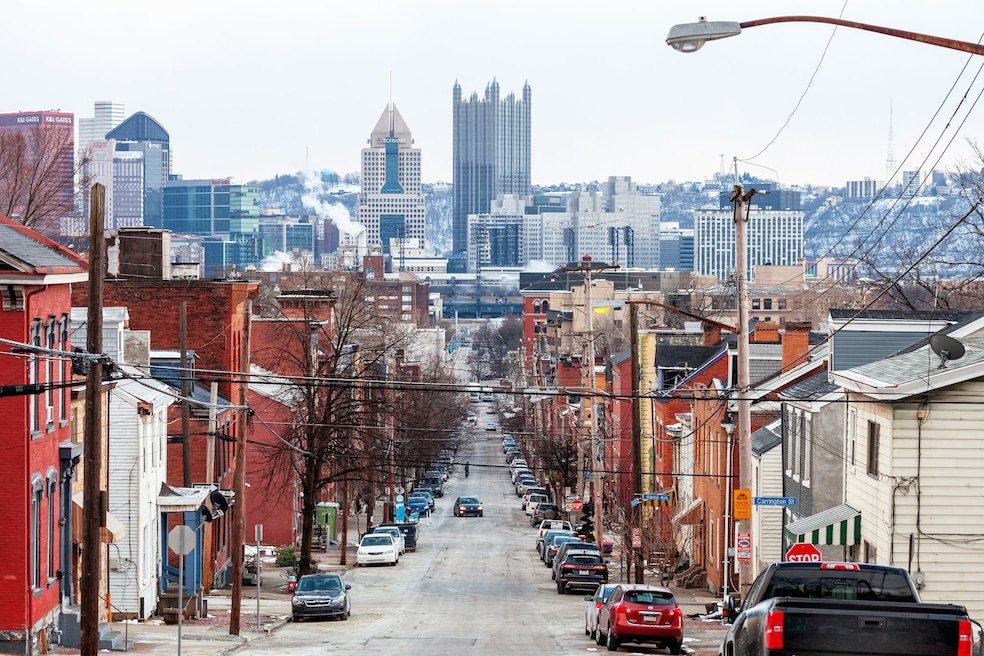Pittsburgh is aiming to require that developers include affordable housing in multifamily projects citywide.
About 10% of the apartments in any new or renovated building with 20 or more units have to be priced at affordable levels under the proposed policy that still must be approved by the city council. The city also wants to eliminate parking and minimum lot size mandates and allow more intensive development near some transit stations in an effort to ramp up housing production.
“We can’t call ourselves a welcoming city if we aren’t constantly working to make housing attainable and affordable for those who live or want to live in our city," Mayor Ed Gainey said in a statement.
The affordable rental homes would have to be priced for a household making no more than 50% of the city’s area median income, or $50,600 for a family of four in 2024 based on current city guidelines.
The proposal to require affordable homes in some developments, officially known as the city’s inclusionary zoning program, faces opposition from local developers and housing advocates who say it’s counterproductive. The city tried the program on a pilot basis in the Lawrenceville, Polish Hill, Bloomfield and Oakland neighborhoods, yielding 35 new affordable units since it was adopted in 2019, according to Pro-Housing Pittsburgh, a chapter of the national housing advocacy group YIMBY Action.
While praising the end to parking and minimum lot size mandates, David Vatz, Pro-Housing’s lead organizer, told CoStar News that these changes won't help if developers choose not to build new housing or build less to avoid the inclusionary requirement.
“Extending inclusionary zoning across the city would be a poison pill that we believe would negate the value of the other, very good reforms that the mayor is proposing and that we have been advocating for for years,” Vatz said.
More than 700 localities in 31 states had some form of inclusionary zoning as of 2019, according to inclusionaryhousing.org, a project of the National Housing Conference and Lincoln Institute of Land Policy. Most of these localities are in Massachusetts, New Jersey and California because these states have supported the concept through legislation.
Opposition
Pittsburgh drew a lawsuit in 2022 from the Builders Association of Metropolitan Pittsburgh in the U.S. District Court for the Western District of Pennsylvania after the city expanded the pilot program to Bloomfield and Polish Hill. The association claimed the inclusionary requirement infringed on builders’ constitutional rights. The litigation remains pending.
By imposing the full cost of an affordable apartment on the developer, the city is raising housing costs for everyone else, Jim Eichenlaub, the builders association’s executive director, told CoStar News in an interview. If a building has 20 units, the 18 market-rate homes will have higher prices in order to subsidize the two affordable ones, he said.
If the city would partner financially with a private developer on a project, it would be fair for it to ask that some of the apartments be affordable, Eichenlaub said.
“The challenge is that the city isn’t putting any money into it, they’re just imposing their will. The city needs to become a true development partner,” Eichenlaub said.
City spokesperson Olga George didn't respond to requests for a comment from CoStar News except to say "the amendments are proposed and we are moving through the process.”
In addition to ending parking and minimum lot size requirements, the city is proposing to allow accessory dwelling units within or adjacent to existing houses. More intensive development would be allowed within a half-mile of the bus and train stations at Herron and Chartiers avenues busway stations and at South Hills Junction.
The city is accepting feedback now from the public on the proposed changes. The city’s planning commission will take up a draft ordinance in late 2024, with the city council expected to consider it early in 2025.


